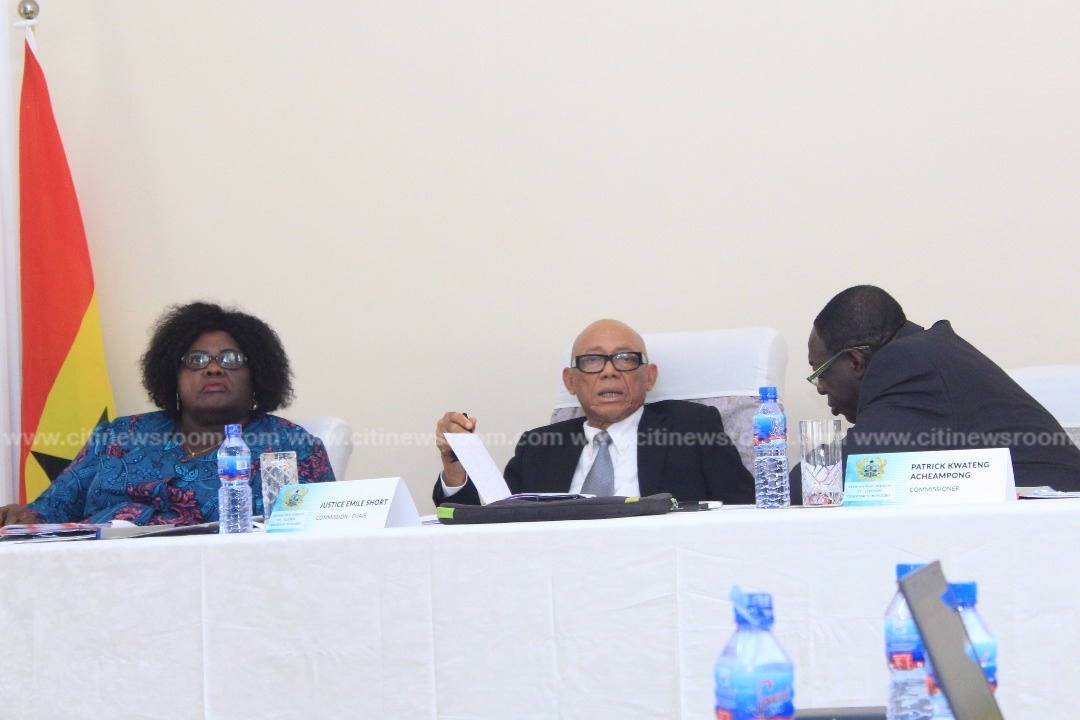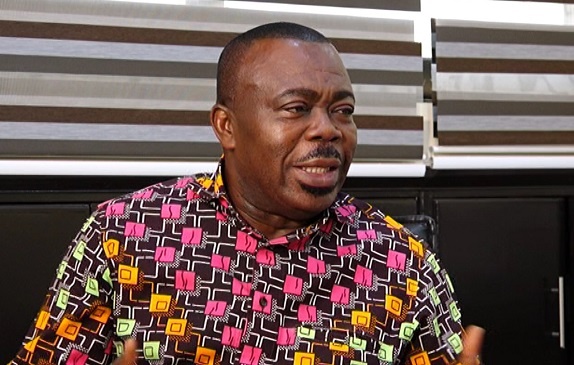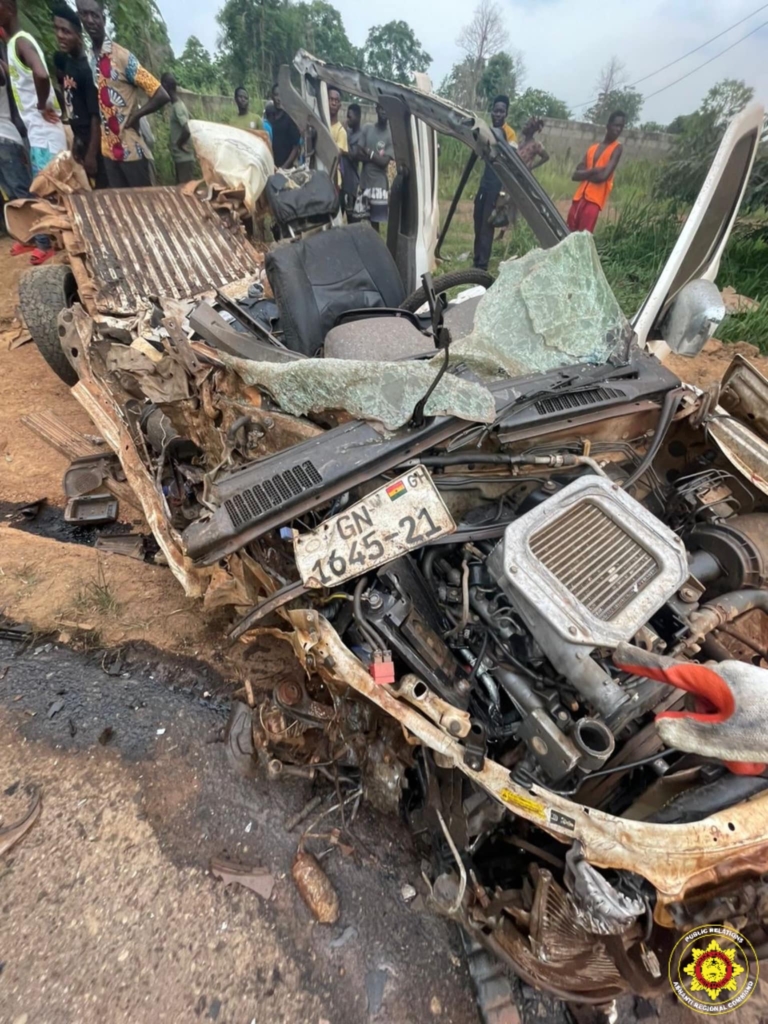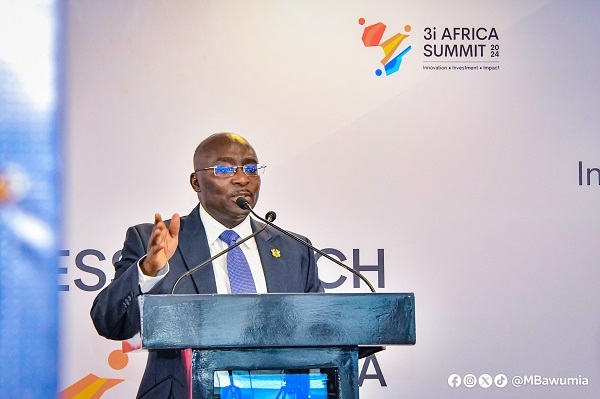
Short C'ssion justifies not inviting Ayawaso West Wuogon MP Lydia Alhassan

The spokesperson of the Emile Short Commission, which is investigating the violence that occurred during the Ayawaso West Wuogon by-election, Katherine Woode has said that the Commission did not invite the then New Patriotic Party (NPP) parliamentary candidate for the area to testify because she was not found to be a material witness.
She said although the Commission had engaged her, it did not deem her testimony relevant to its work.
“She [Lydia Alhassan] actually was with us one of the days,” Katherine Woode she said on Citi TV’s Point of View on Monday but explained that she was not invited to testify since “she was not on the grounds.”
She suggested that that the NPP candidate, who eventually won the election despite the low turnout, was not present at the time of skirmishes at the Bawaleshie Polling station which formed the basis for the constitution of the commission.
“There was a point at which it was agreed by the commissioners that [she] wasn’t there, it is regarding the by-elections in which she was a candidate but she wasn’t there. She wasn’t on the grounds. My executive secretary did speak to her. I wouldn’t say that we didn’t think it was necessary. If the records will show, there was consultation. If you look at it carefully, we need to then find where the relevance is. It is navigating to what relevance?,” she quizzed.
The Commission was formed on February 6, 2019, and had up to a month to submit its report.
Over the past three weeks, the Commission has taken testimonies of principal witnesses in the matter including the Member of Parliament for Ningo Prampram, Sam George; Commander of the National Security SWAT team DSP Samuel Azugu; and NDC Parliamentary candidate Delali Kwasi Brempong.
The hierarchy of national security in Ghana also made appearances before the commission over the course of the hearing.
The first three testimonies came from the Interior Minister, Ambrose Dery; the National Security Minister, Albert Kan Dapaah, and the Minister of state in charge of National Security, Bryan Acheampong.
The Inspector General of Police (IGP) also appeared before the commission in its final week.
The Chairperson of the Electoral Commission, Jean Mensa was also questioned on the extent of the commission’s engagement on security matters in the by-election.
Some observers have been left stunned by revelations that highlight serious gaps in Ghana’s security architecture.
A number of critics have cited the lack of coordination at the top of the security hierarchy as a major failing.
The level of training of national security personnel was also called into question given the protocols observed on the day of the by-election violence.
In his appearance before the commission, a National Security personnel, Bright Ernest Akomeah, popularly known as Double, who was on duty at La Bawaleshie revealed he was recruited into the country’s National Security Council in 2017 after completing a three-week training programme.
Before the training, he said was a polling station chairman for the New Patriotic Party.
Some testimonies like that of DSP Azugu called into question the basic competencies of the security agen.
Many Ghanaians were shocked at DSP’s testimony and described it as inconsistent and riddled with lies.
DCOP Patrick Adusei Sarpong, the Accra Regional Police Commander admitted to the Commission that an officer with the rank of DSP or ASP was not fit to lead the National Security SWAT team.
Members of the Commission also visited the crime scene in the Ayawaso West constituency.
The mandate of the commission
The terms of reference of the commission, which was constituted by Justice Emile Short, Prof. Henrietta Mensa-Bonsu and former IGP Patrick Kwarteng Acheampong was:
- to make a full, faithful and impartial inquiry into the circumstances of, and establish the facts leading to, the events and associated violence during the Ayawaso West Wuogon By-Election on the 31st day of January 2019;
- to identify any person responsible for or who has been involved in the events, associated violence and injuries;
- to inquire into any matter which the Commission considers incidental or reasonably related to the causes of the events and the associated violence and injuries; and
- to submit within one month its report to the President giving reasons for its findings and recommendations, including appropriate sanctions, if any.
Ernest Kofi Abotsi served as the Secretary to the Commission.
Concerns over non-prosecution
Some observers and critics like the New Democratic Congress have expressed dismay at the fact the violence during the by-election was not treated as a criminal case.
Article 280(2) of the 1992 Constitution notes that “where a commission of inquiry makes an adverse finding against any person, the report of the commission of inquiry shall, for the purposes of this Constitution, be deemed to be the judgement of the High Court; and accordingly, an appeal shall lie as of right from the finding of the commission to the Court of Appeal.”
Article 19(7) also says: “No person who shows that he has been tried by a competent court for a criminal offence and either convicted or acquitted, shall again be tried for that offence or for any other criminal offence of which he could have been convicted at the trial for the offence, except on the order of a superior court in court in the course of appeal or review proceedings relating to the conviction or acquittal.”
By: Jonas Nyabor | citinewsroom.com | Ghana
Source: citifmonline.com

![Beyond the cameras and microphones - A look at Akufo-Addo and Macron's presidencies [Article]](https://citinewsroom.com/wp-content/uploads/2019/03/IMG-20190312-WA0009.jpg)




